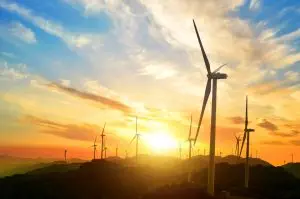 While politics continues to cripple efforts to fight the planetary emergency, the science remains as unequivocal and irrefutable as ever. We have already crossed a number of “tipping points” in the Earth’s systems; vital thresholds beyond which irreversible and catastrophic consequences for all life on this planet will ensue. The impacts of climate change and ecological destruction are more severe and are manifesting themselves earlier than many scientific predictions in previous decades had foreseen. Without major interventions, the risks will soon reach a critical stage.
While politics continues to cripple efforts to fight the planetary emergency, the science remains as unequivocal and irrefutable as ever. We have already crossed a number of “tipping points” in the Earth’s systems; vital thresholds beyond which irreversible and catastrophic consequences for all life on this planet will ensue. The impacts of climate change and ecological destruction are more severe and are manifesting themselves earlier than many scientific predictions in previous decades had foreseen. Without major interventions, the risks will soon reach a critical stage.
For 10,000 years, human civilization has grown and thrived because of the Earth’s remarkable climate stability and rich biological diversity. Astonishingly, every year since the industrial revolution, land-based and ocean ecosystems have absorbed close to half of all our emissions from fossil-fuel burning. That’s because the climate, and the natural ecosystems which regulate it and all life on earth, are inextricably linked. In fact, species diversity and ecosystems integrity play a fundamental role in regulating the climate, water cycles, carbon sequestration and food production. Without nature’s ability to absorb and store our greenhouse gas (GHG) emissions, we would have already exceeded 2°C of warming, with potentially disastrous consequences decades ago.
The simple fact is, we don’t know how to reconstruct the cryosphere, the hydrological cycle, the rainforests, coral reefs and other life-support systems on Earth. Once the emergency fully manifests, it will simply be too late to reverse the breakdown. Collapse will cease to be something we can control. Collapse will no longer be a mere hypothetical; it will be a near certainty. Put bluntly, this is the greatest existential risk facing modern human civilization.
It is, without doubt, our patterns of economic growth, development, production and consumption which are pushing the Earth’s life-support systems beyond their natural boundaries. We so depend fundamentally on these ecosystems. And yet it is we who are the very drivers of their demise. It is we who are pushing the systems which support life on Earth beyond their natural, ‘planetary’ boundaries. It is we who are causing severe changes in weather patterns and wreaking untold destruction in the shape of wildfires from the Amazon to Australia, and violent storms from Mozambique to Barbados, to name but a few. And while a majority of governments and corporations continue to twiddle their thumbs in what amounts to outright denial of the facts, the risks of collapse intensify.
It is time for another reality check: our unhealthy consumption and growth habits have not only “tipped” ecosystems but have also created severe “socio-economic” hotspots and greater inequality in both mature and emerging economies. The emergency is not just about ecological breakdown. It is also about societal breakdown and acknolwedging that as we urgently address the climate and biodiversity risks, we must simultaenously build new economic, social and financial systems which foster wellbeing and regeneration rather than unbridled economic growth and consumption at all costs.
Calls for a new “growth” paradigm and “growth” indicators were already made in the 1960s by President John F. Kennedy and Senator Robert Kennedy. In 1972, the seminal work by The Club of Rome, “The Limits to Growth”, laid out the price of progress from socio-economic, financial to environmental tipping points. These are predictions that hold true today.
Leave a Reply